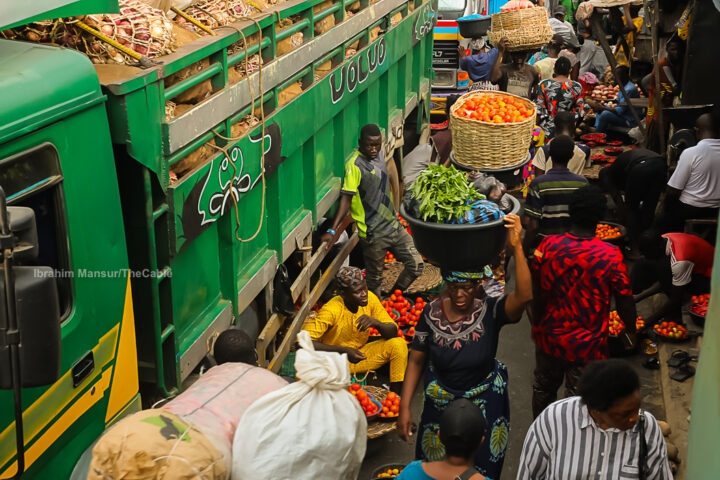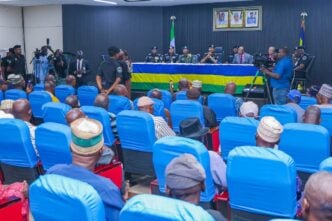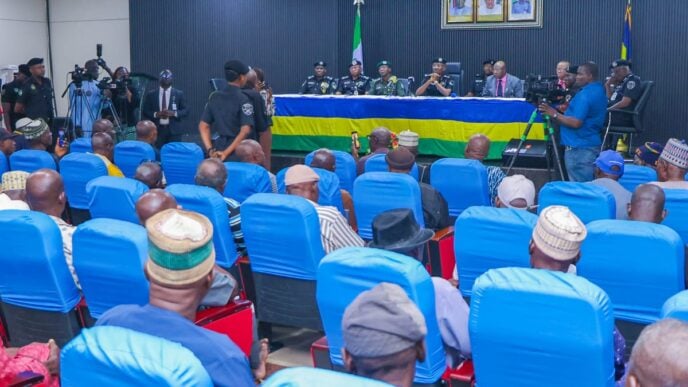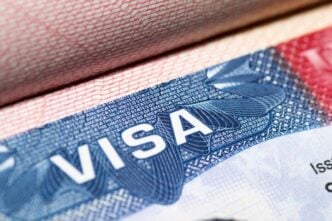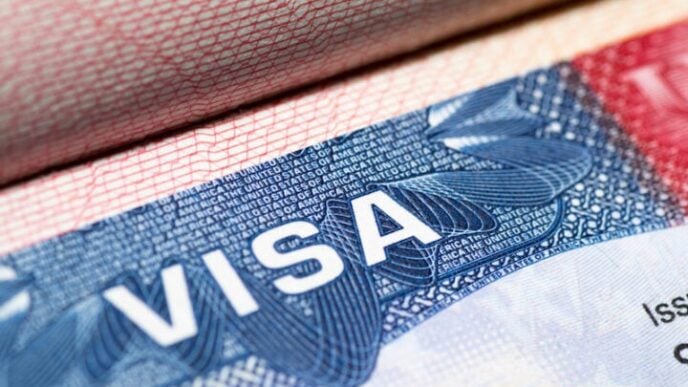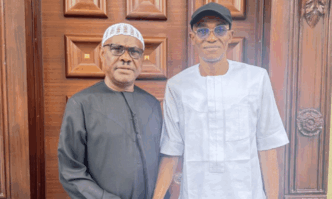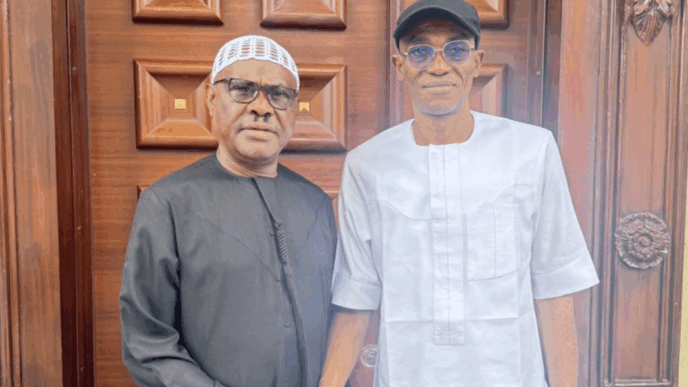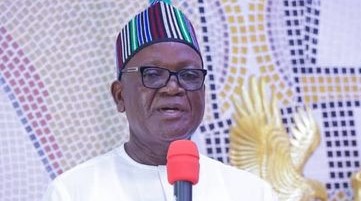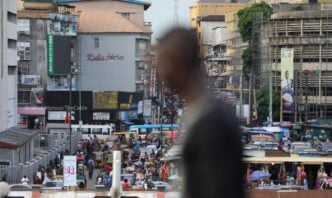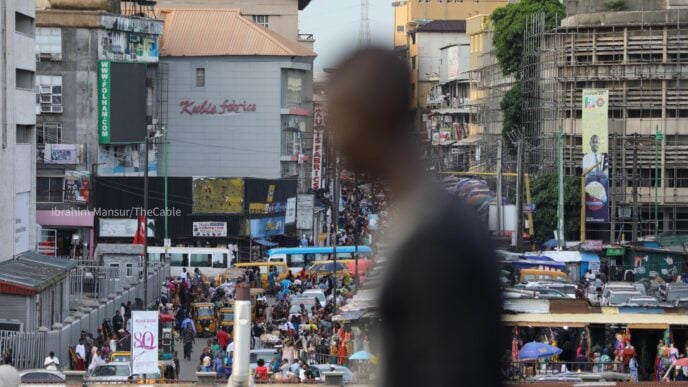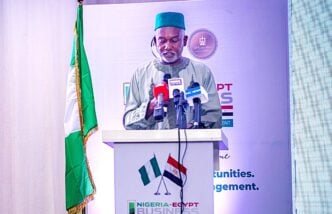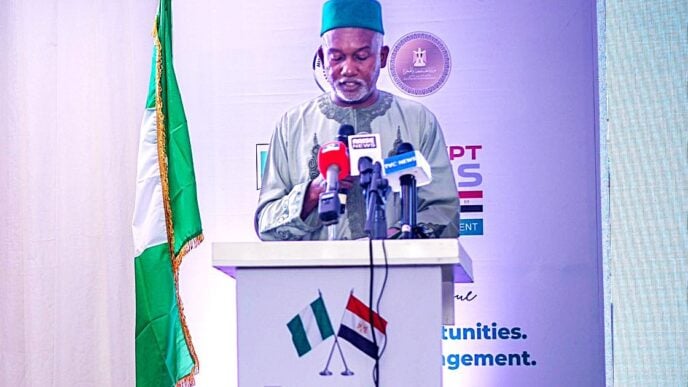The National Bureau of Statistics (NBS) has released the long-awaited rebased gross domestic product (GDP) figures, updating the base year to 2019.
The last GDP rebasing exercise was conducted in 2014, with a base year of 2010.
In a statement on Monday, Adeniran Adeyemi, statistician-general of the federation, said rebasing is conventionally done every five years, depending on resource availability and the technical capacity of the statistical office.
“As we are all aware, economies are dynamic. They change continually with innovation and new technologies, which alter the production and consumption patterns of individuals, households, firms, and government,” Adeyemi said.
Advertisement
“Given these changes, it is only right that the parameters used to estimate the size, structure, and movements in the economy are updated periodically, ensuring an accurate and realistic picture of the economy.
“This is why statistical offices worldwide undertake the process of rebasing. This is not a Nigerian affair; it is a global practice, conventionally done every five years, of course, depending on resource availability and the technical capacity of the statistical office.”
He said the rebasing of the economy was not done by the government to fulfil any set target or objectives, but rather a routine activity.
Advertisement
“It is also essential to state that the conduct of this exercise is not instituted or directed by the government to fulfil any set target or objectives. This is merely a routine activity, as I mentioned earlier, one that NBS undertakes in fulfilment of our mandate and as a responsible producer and manager of official statistics in Nigeria,” Adeyemi said.
‘BY FAR THE MOST COMPREHENSIVE OF ANY REBASING EXERCISE CONDUCTED BY NBS’
Adeyemi said the rebasing exercise was better than those previously conducted by the NBS, as it included some activities that were missing in previous reports.
He said the NBS has added the business sample census and the agriculture sample census, the Nigerian living standards survey, and the revised Nigerian labour force survey, among others.
Advertisement
“The process of conducting this rebasing exercise, just like any other, requires a massive amount of granular data, and I am proud to say that this one is by far the most comprehensive of any rebasing exercise conducted by the Bureau,” the statistician-general said.
“For those who can recall, when presenting the results of the 2014 rebasing exercise, with a base year of 2010, the Bureau mentioned that two major activities were missing: the Business Sample Census and the Agriculture Sample Census.
“Under this round, however, not only have both censuses been conducted, but other notable data collection activities have also been carried out. This includes the Nigerian Living Standards Survey, which provided data on Households operating non-farming enterprises.
“Other data collection activities include the National Agricultural Sample Survey, the Annual Business Establishment Survey, the Revised Nigerian Labour Force Survey, and a range of administratively sourced data from Ministries, Departments, and Agencies of the government.”
Advertisement
Adeyemi further said due to the elaborate data collection activities embarked on by the bureau, it recorded significant improvements in the coverage of activities such as digital economic activities, water transportation, activities of pension funds administrators, and National Health Insurance Authority (NHIA).
Others are the activities of modular refineries, the Nigerian Social Insurance Trust Fund (NSITF), domestic households as employers of labour, informal sector activities, and quarrying and other mining activities.
Advertisement
“In addition to this enormous pool of data harnessed during the exercise, other technical and methodological enhancements have also been adopted to align the GDP estimates with international best practices and improve their quality,” he said.
“One such application is the use of Financial Intermediation Services Indirectly Measured (FISIM) in relevant economic activities, including Crude Oil and Natural Gas, Oil Refining, Cement, Rail Transport, and Financial Institutions.”
Advertisement
He said all the changes, improvements, and enhanced coverage give “us the confidence that these numbers released today represent the best estimates of Nigeria’s national economic output”.
Adeyemi added that NBS collaborated with relevant partners and stakeholders, both locally and internationally, from the government, academia, the private sector, civil society, the development space, and the media, for the rebasing exercise.
Advertisement
